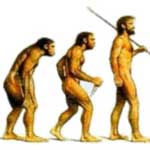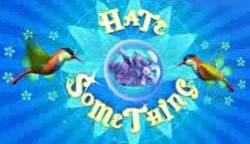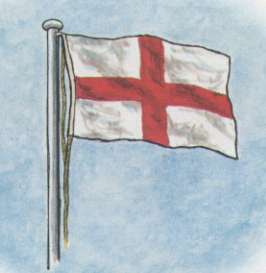 Bill "Ubi" Dwyer at Windsor Free Festival."So what is a free festival?
Bill "Ubi" Dwyer at Windsor Free Festival."So what is a free festival?
"It's a party. It's a camping trip. It's a social gathering. It's a spiritual occasion. It's a celebration. It's a political protest. It's a rally...."“Reclaim The Archetypes!”
Two old festival goers meet in a pub, and begin reminiscing about a particular festival. Except that, within ten minutes, they discover that they have no memories in common: not one memory coincides. They know that they were at the same festival on the same date, but beyond that nothing. They remember entirely different things.
"Were we even at the same festival?" one of them asks, archly.
The cliche about the sixties is that whoever remembers them wasn't there. The line about the free festivals might be: whoever doesn't remember something utterly unique about them wasn't there.
The difference between a free festival and a pay festival may appear obvious on the surface. A free festival is free. But, while they have a common origin - the earliest free festivals, such as Woodstock in the United States, and Phun City in the UK, having started as pay festivals that went wrong - the main difference lies in the organisation, there being no overarching structure of control at a free festival, and no profits for the corporations. Thus the differences are - actually - immeasurable.
So what is a free festival? It's a lot of things.
It's a party. It's a camping trip. It's a social gathering. It's a spiritual occasion. It's a celebration. It's a political protest. It's a rally. It's a bike rally, a truck rally and a political rally all at the same time. It's an alternative economy, a market, where you can buy and sell all sorts of things. It's a craft fair. It's a place where you can meet new lovers or old friends. It's a showcase for bands and for alternative technologies. It's an exercise in collective decision making and collective dreaming. It is the model for a certain type of pop anarchism. It's an extended family. It's a cheap holiday. It's a safe place to bring the kids. It's a romantic interlude. It binds you to the past and anticipates the future. It's all of these things and more.
Inspired firstly by the film of Woodstock, which came out in 1968, and then by the sequence of free concerts held in Hyde Park during the late sixties and early 70s, the early free festivals were unique affairs.
The slogan for the Windsor free festival, one of the earliest, held at Windsor Great Park during the August bank holidays between 1972 and 1974 - reclaiming what had once been common land - was "Pay No Rent". That tells you a lot about what was going on at the time.
In fact, the man who first conceived of the festival, Bill Ubi Dwyer, a civil servant who utilised government copying facilities to publicise the event, saw it in a vision. He saw a mass of people, like a gathering of the tribes, on Crown land. And when attempts were being made to block his progress, by denying him permission, he said: "I personally have God's permission for the festival."
This is the stuff of legend, of course. It may or may not have happened. But if it didn't happen, it ought to have.
And that's what people seem to remember about the festivals. Something archetypal: something reflecting a mythological dimension, like a stirring from the depths..
As Willow, 51, from Glastonbury said, referring to the Stonehenge festival: "To me it was like a strobe light. You saw the sacred and the profane interacting every minute. On mid-summer's eve, it would buzz, it was like a dome came down over it, and I saw whirling orange spirals in the sky, and everything became completely archetypal." And she likened the atmosphere to one of those Goblin Fairs of Fairy-stories: a place where anything can happen.
Des, 53, also from Glastonbury, agreed.
He was remembering one particular festival.
"Might have been Trentishoe. Right on the North Devon coast. I remember we got there about four in the morning. You couldn't drive to this place. You had to walk up a track. And I remember as I got to the bottom of the valley with the crest of the hill in front of me, these three people and a goat appeared through the mist, and there was this woman, a very tall Apollonian figure, with long blond hair wearing a loin cloth, and some bloke carrying a big bundle tied up on his back and leading this goat on a lead. They were leaving this festival and walking back up into the world. And it was a bit like something out of Crock of Gold, you know, the James Stevens book. Because it was so mythological. They just seemed so majestic."
This was deeply impressive to the young man, who set about remaking himself as his own archetype.
It was this quality that separated the festivals from ordinary political events. Because, although there was a political intent, to do with the liberation of private property, born from a specifically anarchist perspective, the events themselves brought up much that was deeply embedded in the human heart*.
Not that everything was perfect.
Willow also remembered the biker riot one year at the Stones, when the Hell's Angels had moved in and attempted to take over. The bikers and the travellers had ended up eyeballing each other across the main drag, until the bikers had backed down. You had to be willing to protect yourself. But in later years the bikers became as much a fixture of the festival as everyone else. Willow had only escaped the fearfulness of the occasion because she was, as she says herself, in fairyland at the time.
Steve, 51, from Cardiff, was also aware of some of the negative aspects of the culture.
He was hitch hiking home from one festival, when he collapsed. "I got to Bristol to an interchange there, and there was a whole queue of people, more festival goers, maybe twenty, thirty odd people lined along the road," he says. "I'd been walking for hours, it was hot, I was tired, and I must have just flaked out: you know, exhaustion, heat, everything." He came to several hours later. But what struck him was that the other festival goers hadn't even checked if he was all right. "I'm thinking, where are all the people, where are all these hippie cool people gone? They all left me here. I could have been dead."
So there was also a kind of narcissism there. Some people were just too cool to think about anyone but themselves.
Later came the introduction of heroin and cocaine, and the consequent involvement of the criminal fraternity, before Ecstasy, Acid House Parties and Rave entered the picture in the late eighties, reviving the scene again.
The last great free festival was held at Castlemorton Common, near Tewkesbury in the Malvern Hills in May 1992. It lasted about four days and up to 50,000 people attended. There was a big court case afterwards in which fourteen people were charged with "Conspiracy to Cause a Public Nuisance". Between them, the policing operation and the court case cost the British Taxpayer approaching £5 million. All fourteen people were found Not Guilty. The infamous Criminal Justice Bill of 1994 was enacted precisely to stop this kind of event from ever happening again..
Since then there have been a few other attempts to create a major free festival, most notably The Mother Festival in 1995, effectively splintered by the police into several smaller scale events. And every summer across the country small groups of people still gather to sit beneath the stars, in woods and fields, round an open fire, to revel in each other's company, sometimes with music, sometimes not.
As to whether there will ever be another large scale festival in the United Kingdom: that depends.
It's down to you.
The Trials of Arthur by CJ Stone & King Arthur Pendragon: Element Books June 2nd 2003, ISBN 0-00--712114-8.
Useful links: Squall Online.
*-
"Anarcho United Mystics (AUM) started working back in 1977 because the 'revolutionaries' kept overlooking the need to change themselves as well well as the world, and the 'occult/religious' kept overlooking the need to change the world as well as themselves. These oversights reulted in 2000 years of failed revolutions and millions of people wasting their lives with religious/spiritual illusions and dogmas. After all, what is the motive of revolution? Ultimately, it is love. Love objects to the injustice of the present system, the starving millions, the wars and corruption of the ruling powers. But this love, the essence of revolution, is the easiest part to overlook and the forgetting of it has resulted in hundreds of failed revolutions and useless religions". Tim Corber, AUM Newsletter, 1980
The Top Five Free Festivals.
Phun City, July 1970.
Originally conceived as a paying event, organised by Mick Farren of the Social Deviants: when the organisation collapsed it turned into the first ever UK free festival. Several bands who had been invited were asked to pay for free. The only band who refused were, ironically, Free. The promo slogan was "Get Your End Away At Phun City!"
Glastonbury Fair, Summer Solstice 1971.
A visionary affair. Organised and paid for by Andrew Kerr, ex Personal Assistant to Randolph Churchill, on Michael Eavis's dairy farm in Pilton, Somerset, it became the model for all subsequent Glastonbury Festivals. As Kerr said at the time: "If the festival has a specific intention it is to create an increase in awareness in the power of the Universe, a heightening of consciousness and a recognition of our place in the function of this our tired and molested planet." Whew!
Windsor Free, August Bank Holiday 1972-74.
The last festival was violently attacked by the police, with a number of arrests and several injuries. Such was the negative reaction to this in the press that the police left the festivals alone for over ten years after that.
Watchfield, August Bank Holiday 1975.
Not a particularly good festival, by all accounts, it has the unique historical distinction of being the only free festival in which the British Government collaborated, by providing the site: a disused airfield in Berkshire. A model for the future, perhaps?
Stonehenge, Summer Solstice, 1974 - 1985.
The Mother of all Free Festivals. The longest lasting and best remembered. Started by Phil Russell, aka Wally Hope, after a vision - an experience he shared not only with Bill Dwyer, but with Andrew Kerr too (is this a pattern?) - it was finally stopped in 1985 after the infamous Battle of the Beanfield: effectively a police riot. Gatherings at the Stones on Summer Solstice night resumed in 2000 and continue to this day. No festival, although there have been various attempts to set one up in the vicinity. One day maybe?
Remembering Bill Ubi Dwyer
I helped Ubi Dwyer to publicise a free festival in Phoenix Park, Dublin, 1978.
By Garreth Byrne
I first came across Bill 'Ubi' Dwyer in April 1978 at the top of fashionable Grafton Street near St. Stephen's Green in Dublin handing out leaflets about a free music festival being organised for the bank holiday weekend of 5-7 August. The venue was The Hollow in Phoenix Park, in the western suburbs of Dublin. The word peace was prominent on the leaflet and other messages like: Everybody welcome, catholic and protestant. "We are all one" ended the leaflet at the bottom. It contained a request for help, donations and offers to play music, with a contact address. Pictures from the Windsor Free Festivals decorated the text.
I had read bits and pieces about the Windsor festivals in the British magazine, Peace News, which I'd subscribed to when teaching English in Zambia during the mid-1970s. It appeared to be part of the flower power anti-authority wave that had rolled across the Atlantic from San Francisco since the late 1960s, on the crest of the greater, world-wide anti-Vietnam War wave.
In 1978 I was involved in the production of an Irish nonviolence magazine called DAWN. I was curious to hear a first hand account of the bohemian protest scene that I had missed out on by spending some critical early years of my teaching career in spartan parts of Africa. I wrote to Ubi Dwyer and he invited me to interview him at his home in Glenageary, a leafy suburb not far from the upper class seaside suburb of Dun Laoghaire.
I approached a tidy, modest bungalow off Glenageary Road. From the front garden came a waft of primroses, wallflowers and tulips. A note on the door directed visitors around to the back garden where stood a spacious two-roomed caravan. Ubi stood up from a composted seedbed with a trowel in hand and greeted me. He was then in his mid-forties, tall, wearing a casual yellow and blue suit, had thick silver hair with a matching moustache. He spoke in a deep, confident articulate voice. The accent was Irish, with international traces.
At his own expense he had printed 150,000 leaflets and posters to publicise the Phoenix Park Festival. He and a tiny number of helpers had been distributing them around the city. He had already spent £850 of his own funds on stationary, stamps, phone calls and leaflets. Small donations had been received. About 70 groups and individuals had volunteered their musical talents. These included WATFORD GAP (England), RAVING GALE (Limerick), U2 (not yet a global force, then resident in Malahide, a bourgeois seaside village north of Dublin), ROCKY DEVALERA & the GRAVEDIGGERS (Dublin) and a French folk singer DOMINIQUE.
What had got him into this free festival lark? He told me that ten years previously he'd worked on an Australian newspaper and then considered himself to be a sort of nonviolent anarchist. In Australia he befriended some expatriate American flower power people and learned that there was a "worldwide movement for love and change." He pondered these conversations, gave up his job, travelled, meditated and studied world religions. His study of Hinduism in particular convinced him that free festivals had great potential as a medium for change.
I noted sceptically that the Windsor festivals of the mid-70s had attracted a lot of drug trippers and hedonists who hadn't a notion about changing the world. Ubi agreed but insisted that many other people had been positively affected, so he would continue his efforts. (He had been arrested and jailed in England during Windsor 1975 and returned to Ireland after being released. He worked as an assistant in the physiotherapy department of a Dublin hospital, where he was popular and had a knack for cheering up the patients.) He insisted that free festivals were for everyone and added in a tone of utopian liberalism reminiscent of Voltaire: "Even if the National Front turned up at Windsor - and I disagree with them vehemently - I personally would go and greet them. I wouldn't turn anybody away and I don't agree with the aggressive street confrontations of some NF opponents." In hindsight it is surreal to imagine a weekend musical lovefest involving the NF, Hell's Angels and 57 varieties of militant trotskyists, maoists, feminists and anarcho-syndicalists, although I'm sure the popular Irish singer, Christy Moore, could sing a funny song on the theme if anybody cared to pen the lyrics.
The weather became warmer that year as May dovetailed into June. I decided for the sake of exercise and curiosity to help distribute Ubi's festival leaflets. We went to various locations on bikes, occasionally around teatime midweek but generally on Saturdays. Ubi rode out to Rathgar where my office was based and we headed for any suburb he had targeted. Leaflets were distributed at shopping centres and door-to-door. One Saturday morning there was a big Charismatic religious rally at the Royal Dublin Society hall in Ballsbridge, so we stood at the entrance handing out leaflets there. Another day we leafleted in Castleknock which straddles the north-west perimeter of Phoenix Park. We took the opportunity to look at The Hollow, a natural amphitheatre with sloping grass banks shaded by fine oak, sycamore, chestnut and elm trees. A small roofed bandstand stands in the centre.
That evening we quenched our thirst at a pub adorned with portraits of Irish presidents - Douglas Hyde, Eamon de Valera, Erskine Childers, Cearbhall O'Dalaigh and the then incumbent Paddy Hillery. In Phoenix Park is the stately residence of the largely ceremonial Irish President. The election of women like Mary Robinson (1990) and Mary McAleese (1997) was at the time something in the unimaginable future. I suppose I went leafleting half a dozen times or more when not otherwise busy with my unpaid work for DAWN magazine and the penal reform group, the Prisoners Rights Organisation, of which I was secretary. The weather stayed dry and I enjoyed getting to know different parts of Dublin.
A week before the scheduled event volunteers conferred at a parish hall near Ubi's home. I arrived to find about twenty young people and one older man, Fergus Rowan, a personal friend of Ubi who was then in dispute with the Bank of Ireland over its failure to rescue his horticulture company Rowans Seeds when it had run into crippling cash flow difficulties. The time for the meeting passed. We patiently waited for Ubi to turn up. A half hour elapsed and I walked to his caravan. "Let them wait a bit longer. I've been doing most of the work up to now. Do they expect me to wipe their arses?" were his tetchy remarks when I asked him to come to the hall. This was the first hint I had of Ubi's double personality. I walked back to the meeting place and told them he was coming. "He's one big Ego," noted a young rock fan ruefully. After another quarter hour he arrived. It wasn't a comfortable meeting.
Saturday 5th August the first morning was bright when organisers began to arrive at The Hollow. The first band played to a trickle of spectators. By midday I spotted half a dozen individuals in wheel chairs at one corner, supervised helpfully by Fergus Rowan and a friend, who had arranged special transport. Gradually the attendance swelled to a few hundred individuals and parents with children. More bands arrived and got their gear ready. By lunchtime the sky had clouded over and there was a heavy downpour. Ubi donned a yellow showerproof cape and put a cheerful face on things by dancing and twirling to the music around the bandstand. I noticed a sharp row he had with members of one band who got nervous about the possibility of electric shock and wanted to switch off the AC/DC system. He effed and blinded loudly at them and insisted that the show go on. The shower died down, the sun reappeared, and Ubi disappeared. More people turned up to listen and the music went on smoothly until about 7 p.m.
Around 4 p.m. Ubi reappeared at the bandstand and looked the worse for drink. His reeking breath and raving demeanour suggested several double shots of Irish whiskey in addition to the customary pints of Guinness. A uniformed member of the Gardai (police) and a plainclothes detective tried to reason with him. He was escorted from The Hollow, somehow got to the ferry harbour at Dun Laoghaire and took the boat and overnight train to London. British newspapers reported a week later that Thames Valley police arrested him as he arrived at Windsor Park intending to launch a banned free music festival there. He was sentenced to jail and didn't return to Dublin until the autumn of 1979. I sent a note of sympathy to his mother in Glenageary, with a breakdown of expenses for duplicating programmes handed out at the festival in Phoenix Park. He sent me a polite acknowledgement after his release from prison.
The Phoenix Park festival went smoothly on the Sunday and Monday, with good sunshine and attendances of around three thousand on each day.
The world wasn't changed by this or any music festival, but U2 within a few years became a major rock band and two decades later Bono capped his career by lobbying the Pope and various world leaders on the issue of third world debt. Another Dublin rock star (who didn't perform in Phoenix Park) was Bob Geldof and he gave the moneyraking rock industry a temporary conscience with his celebrated 1985 Live Aid concert for Ethiopia. Fundraising concerts didn't change the world either, but fans rocked their asses off and felt good for having supported a charitable cause. Meanwhile the prime movers and shakers of the rock industry drive people's fantasies and keep smiling all the way to the bank.
Two weeks after Phoenix Park the first Carnsore Anti-nuclear Rally attracted an attendance of 10,000 in the south-east of Ireland. There were speeches, workshops and free music by people like ballad singer Christy Moore. This captured the imagination of the Irish media in a way that Ubi Dwyer's event couldn't hope to do. The anti-nuclear movement mobilised public opinion against moves by the Irish Government to build a nuclear reactor.
Ubi Dwyer promoted a spent flower power peace-and-love approach to social protest. Radical people in the Ireland of 1978 had other concerns and took a grim attitude to social change. Sinn Fein and its sympathisers were deeply concerned about the smouldering H Block crisis in Northern Ireland. Peace campaigners and social workers desperately worked against violence. In the Republic the assorted women's groups were beavering away at sexual equality projects. Poverty and unemployment were increasing as the recession deepened. Individuals like myself were quietly involved in peace and human rights and prison reform campaigning. An incipient environmental movement was gathering momentum. Adi Roche and other campaigners would launch the humanitarian Children of Chernobyl relief organisation twelve years later. Free rock concerts featuring booze and cannabis were thus seen as flippant distractions. Puritanical activists would have regarded Ubi Dwyer as an irrelevant, madcap exhibitionist in the Ireland of 1978.
In the early 1980s Ubi Dwyer was to be seen some weekends standing near Grafton Street dressed in an imposing clerical soutane and matching hat handing out assorted leaflets and engaging curious passers-by in consciousness raising conversation. To some he seemed to be a figure of fun, to others he may have looked like a street evangelist. He bought the clerical gear at Wippels Ecclesiastical Outfitters, a noted London clothing shop frequented by priests and bishops of the mainstream churches.
Around 1984 he circulated a funny memoir of bicycle travels around Ireland undertaken during his holidays over a period of years. It was entitled Senator Sunflower, after the name he gave his peripatetic bike.
What was he trying to achieve? Maybe he was evangelising against what he called the Forces of Awe and Boredom. His aims were sincere and he was highly liked by friends and hospital patients. His eccentric habits didn't attract a following in Ireland. The Forces of Awe and Boredom still haunt the world.
My association with Ubi was only for a couple of summer months in 1978. He and I were of different temperaments, with different cultural and social interests. I enjoyed his company for that short time and moved on. I subsequently promoted third world cultural awareness in Ireland; have dabbled in freelance journalism; have taught English in Africa; done a spell of rural development administration with an Irish aid agency in Tanzania; and have spent periods teaching in China and the Middle East. I'm a bookish, mild-mannered person and have followed my lights in my way. My musical tastes are mostly classical and folk
Ubi Dwyer was a rumbustious, garrulous, hyperimaginative and irrepressible individualist who did things in his own zany way. He was what we call "a bit of a character". He made an impact in the cosmopolitan, atomised mass society atmosphere of south-east England for a few years, but made no headway in the deferential, small scale and more family centered Irish society almost 30 years ago.
A website like this can serve a useful purpose if more of those who were bemused by Ubi Dwyer's zany lifestyle and persuasive personality would record their impressions, and tell us about how their subsequent lives proceeded from then until now.
www.ukfreefestivals.org.












